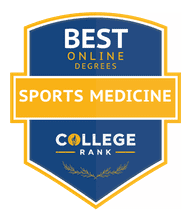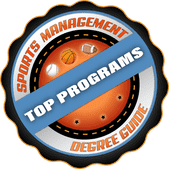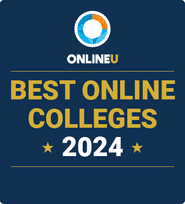Online PhD in Exercise Science With Research and Leadership Focus
Realize your calling and elevate your career with a doctoral degree in Exercise Science at Concordia University Chicago.
Application Deadline: October 15, 2025
Classes Start: October 20, 2025
Accelerated
Fewer Breaks, Finish Faster
100% Online
Anytime, anywhere learning on your schedule
Tuition Guarantee
Your tuition rate is locked in while continuously enrolled
Online PhD in Exercise Science Program: Nurturing Minds, Cultivating Knowledge
Seek knowledge that aligns with your values and embark on a path of growth with our 100% online Doctorate in Exercise Science. Thoughtfully designed for working adults, our asynchronous program allows you to learn at your own pace – anytime, anywhere. We keep health science class sizes small to foster an online community and allow deep connections with your classmates and professors.
At Concordia University Chicago, Christ is at the center of all we do. The CUC curriculum reflects our values, delivering a holistic and honest experience to students — preparing them to do serve the greater good in their career endeavors. Our health exercise science doctorate students use applied research and sports performance medicine teachings to make real changes in the world. Healing bodies, working toward disease prevention and making a difference in their communities.
What Will I Learn in an Online Exercise Science Degree Program?
Our PhD in Exercise Science is a journey of research, discovery and application. The program focuses on advanced study and ethical implementation in the fields of exercise physiology, biomechanics, sports nutrition and related areas.
Research Methods: You will learn advanced research methodologies and statistical analysis techniques used in exercise science research. This includes experimental design, data collection, data analysis and interpretation of results.
Exercise Physiology: You will study the physiological responses and adaptations to exercise, including cardiovascular, respiratory and metabolic changes. Topics may include exercise testing and prescription, aerobic and anaerobic metabolism and the impact of exercise on various physiological systems.
Biomechanics: This area covers the analysis of human movement and the forces involved. You’ll learn about kinematics, kinetics and how biomechanics can be applied to improve athletic performance or prevent injuries.
Advanced Topics: Depending on the program and faculty expertise, you may have the opportunity to delve into more specialized areas within exercise science, such as sports performance, aging and exercise, exercise immunology or environmental physiology.
Nutrition and Exercise: You’ll explore the relationship between diet and exercise, focusing on how nutrition can impact performance, recovery and overall health.
Exercise and Chronic Disease: This area investigates the effects of exercise on various chronic health conditions, such as diabetes, cardiovascular disease, obesity and cancer. It may also cover exercise interventions for managing and preventing these conditions.
Dissertation Research: The core component of a PhD program is the original research conducted for your dissertation. This research should make a significant contribution to the field of exercise science and demonstrate your ability to conduct independent research.
Why Pursue a PhD in Exercise Science Online?
Following your calling into a form of health sciences is an admirable choice. With a variety of complex health issues existing, pursuing a PhD in Exercise Science from Concordia University Chicago is the right step to making a difference in healthcare. By advancing your career with a PhD, you are opening yourself up to more opportunities to make impactful change in the industry.
Curriculum
Research
Common Core
Choose either track 1 or track 2 for your specialization.
Track 1: Advanced Exercise Physiology
Track 2: Applied Strength and Conditioning
Cognate Courses
Select 12 hours from the following:
Comprehensive Exam and Dissertation
Total Hours Minimum: 69 Credit
The 69-credit-hour program, which varies based on research course selection, includes coursework in leadership, health, exercise science, research, statistics and a nine-credit-hour dissertation requirement.
Choose one of the following tracks:
Track 1: Advanced Exercise Physiology
This track is designed for students interested in deepening their understanding of exercise physiology at an advanced level. It focuses on the physiological responses and adaptations to exercise, particularly in specialized populations and disease management contexts. Students will explore advanced topics in endocrinology, metabolism and the application of exercise as a preventive and therapeutic tool. The track includes courses such as Advanced Exercise Physiology 1, Exercise for Disease Prevention and Management, Advanced Topics in Endocrinology and Metabolism and Advanced Exercise Physiology and Special Population Considerations.
Track 2: Applied Strength and Conditioning
This track is tailored for individuals aiming to specialize in strength and conditioning within various contexts such as athletics, rehabilitation and general fitness. It emphasizes the application of advanced strength and conditioning principles, including biomechanics, measurement and evaluation techniques and the psychology of sport and exercise. Students will learn how to design and implement effective strength training programs, understand biomechanical principles for optimal performance and utilize psychological strategies to enhance athlete performance. The track includes courses such as Application of Advanced Strength and Conditioning 1, Psychology of Sport and Exercise 1, Measurement and Evaluation in Health and Human Performance and Advanced Biomechanics.
Admission Requirements
- Master’s degree in exercise science or related field
- 3.0 minimum GPA
- Objective statement
- Letters of recommendation
Research Expertise: A PhD program in Exercise Science provides in-depth training in research methodologies, data analysis and critical thinking. Graduates emerge as experts in their chosen areas of research, capable of conducting original investigations that contribute to the body of knowledge in the field.
Academic and Teaching Careers: For those interested in academia, a PhD is often a prerequisite for tenure-track faculty positions at colleges and universities. With this degree, you can teach undergraduate and graduate courses in exercise science, mentor students and shape the future of the field through education.
Leadership Opportunities: The knowledge and skills gained during a PhD program prepare graduates to pursue leadership roles in various settings, including research institutions, government agencies, healthcare organizations and sports organizations. Graduates can become directors of research programs, exercise physiology labs or health and wellness initiatives.
Advancement in Health and Fitness Industry: A Doctorate in Exercise Science can open doors to higher-level positions in the health and fitness industry. Graduates may find opportunities to work with professional sports teams, corporate wellness programs or elite athletic training facilities.
Networking and Collaborations: Pursuing a PhD offers opportunities to collaborate with established researchers, professors and experts in the field. These connections can lead to joint research projects, publications and presentations at conferences, enhancing your professional network and reputation.
Intellectual Challenge and Personal Growth: A PhD journey is intellectually stimulating and requires perseverance and dedication. It provides a chance for personal growth as you overcome challenges, develop resilience and cultivate strong problem-solving skills.
Contribution to the Community: As a PhD holder in Exercise Science, you can become a prominent figure in your community, promoting physical activity, health and wellness. You may engage in public outreach, workshops and initiatives that encourage healthier lifestyles.
Global Impact: The research conducted in Exercise Science often has implications beyond local borders. Your work can contribute to global efforts to combat sedentary lifestyles, obesity and other health-related issues.
Lifelong Learning: A PhD program fosters a love for lifelong learning and continued curiosity about the latest advancements in the field. Graduates stay up-to-date with current research and contribute to the ongoing evolution of Exercise Science.
Overall, a PhD in Exercise Science at Concordia University Chicago is a rewarding and fulfilling path for individuals dedicated to advancing knowledge and providing positive outcomes in physical activity, health promotion and human performance.
Institutional Accreditation
Concordia University Chicago is accredited by the Higher Learning Commission to award baccalaureate, master’s and doctoral degrees.
Why Choose Concordia University Chicago for Your Health Sciences Education?
Discover a unique educational experience at Concordia University Chicago, where we go beyond academic excellence. We integrate Christian principles into every aspect of our programs, focusing on integrity, service and a commitment to the common good.
Christian Foundation
CUC stands out by emphasizing a Christian perspective throughout our institution. The mission goes beyond developing programs; our doctoral programs aim to shape graduates who embody Christian values and contribute to the world in a Christ-led manner.
Vocation and Purpose
We prioritize the Christian concept of vocation, viewing education as a divine calling to serve others. Your journey at CUC is not just about a promising career; it’s a commitment to making a meaningful impact on the well-being of others.
Diverse Representation
Our commitment to inclusivity extends to visual representations. Rather than relying only on Eastern or Western practices, we showcase diverse and meaningful visuals of human movement, respecting various beliefs and ensuring every student feels understood.
Choose Concordia University Chicago for a health sciences education that transcends traditional boundaries, preparing you not only for a successful career but also for a life of compassion, integrity and purpose.
Pursuing a PhD in Exercise Science from CUC is a commendable choice for those called to make a difference in health sciences. In a world facing increasingly complex health challenges, advancing your career with this doctoral program equips you with the expertise needed to drive meaningful change in healthcare. Earning a PhD not only deepens your knowledge and skills through evidence-based practice but also opens the door to a wide range of career paths where you can have a lasting impact on the industry and contribute to the well-being of others.
- University Professor: Teach advanced courses in exercise science, conduct research and prepare students pursuing careers in health, fitness and sports.
- Director of Sports Science: Lead research and development initiatives within sports organizations, focusing on improving athlete performance through scientific analysis and innovative training methods.
- Exercise Science Researcher: Conduct high-level research on the physiological, biomechanical and psychological aspects of exercise, contributing to academic knowledge and practical applications in health and fitness. By utilizing quantitative research methods and other strategies to unlock advancements in human care, researchers are critical to the health sector.
- Senior Exercise Physiologist: Work in clinical settings or research institutions, designing and overseeing complex exercise programs for patients with chronic conditions, athletes or specific populations.
- Chief Wellness Officer: Develop and implement comprehensive wellness programs within corporations, hospitals or communities, integrating exercise science principles to promote health and well-being.
Lock in Your Tuition!
As long as there are no interruptions in your course of study, we guarantee your tuition will remain the same and never increase while earning this degree. This guarantee ensures a stable and predictable investment in your education.
Don’t miss out on our Tuition Guarantee – enroll today!
Frequently Asked Questions
Technology and Online Learning
Tuition and Financial Aid
Student Testimonials
“The professors are super helpful. Two of my professors who were very meaningful to me were also athletic trainers. They would meet every few weeks and talk about the coursework and my job.Get to know your professors. They can help you with day to day or even land a job. Send an introductory email so stand out as a student. You can get to learn about how they are experts in their field.”
“Make that commitment that once you’re going to start the program that you are going to be dedicated to completing it and finishing it.”
“Be committed to see it through and give 100% because that’s really how you’re going to be able to take what you learn and apply it into a career setting.”
“It’s hard to get your masters and be a mom, to be working full time. But it’s a great sense of ‘yeah I did that, while working a full time job, it’s rewarding”.I would say Concordia and getting my masters was the jumpstart of what made me great today.”
“CISSN I passed with flying colors and I got over a 90%.” Getting your Masters degree prepares you to be an auto mechanic. When you get your Masters you learn how to build the car so it teaches you how to understand the scientific principles very deeply that surround these certifications.
I will tell you that it improved my practice a hundred times over just having a really strong grip on the scientific foundations that builds the certification. I was balancing 5 kids and owning a gym. The professors are good at working with adults who are working. The program is entirely doable and designed for working adults and that’s why you choose asynchronous online education.
A big thank you to all the amazing professors I had in my time at Concordia, I will tell you I really got my money’s worth out of that program. You are going to get out what you put in. If you put in the work you will reap the reward. You will make the connections you need to make. You will learn what you need to learn to be a better practitioner”
Take the Next Step Toward Advancing Exercise Science
Discover how CUC’s online PhD in Exercise Science equips you with the expertise and knowledge to shape the future of health and human performance. Transform your passion for exercise science into impactful change in healthcare, athletics and education.



